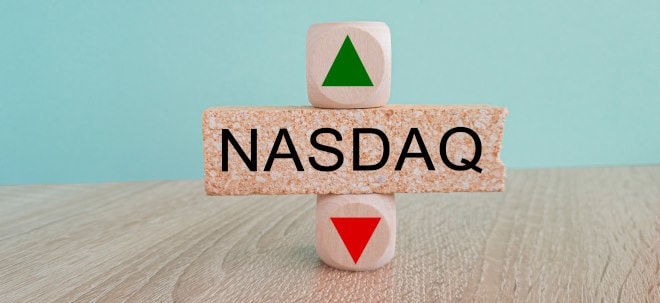Nokia, Samsung, Motorola, ... aufgepasst! How an iPhone could rock wirelessNokia, Motorola, Samsung and LG might be secretly rooting for the iPhone to be a (minor) hit.NEW YORK (Fortune) -- If Steve Jobs' Apple decides to build a wireless phone, as widely rumored, the company has the chance to shake up not just the wireless device business - an industry dominated by the likes of Motorola and Nokia - it also could upend the entire wireless distribution model in the United States. We know very little about the so-called iPhone. Apple (Charts) isn't talking ("We don't comment on rumor and speculation," a spokesman told me) but we do know that wireless represents a huge opportunity - and threat - for Apple, and every other consumer electronics and computer maker. Wireless phone makers increasingly are adding MP3 players to their devices, with the capability to download songs over the air. It certainly makes sense for Apple to want a piece of this action. How Apple makes this happen is a topic of great swirl in tech and telecom circles. UBS telecom analyst John Hodulik recently published a report positing that Apple would seek to become a virtual phone company, buying airtime wholesale from Cingular and reselling wireless service, along with its new phone, sometimes in the first quarter of 2007. 2006: Tech winners and losers <!--endclickprintexclude-->Other rumors have Apple building a phone with built-in Wi-Fi service that would allow customers to make calls and download data and music from the free or cheap Wi-Fi networks proliferating in urban and suburban settings, bypassing traditional cellular networks. Both scenarios underscore Jobs' aversion to ceding control to telcos such as Cingular, Verizon (Charts), T-Mobile and Sprint (Charts), which exercise huge control over the entire wireless food chain in the U.S. Or Apple could pursue a path similar to the one forged by traditional wireless phone makers, and sell its iPhone through the carriers - an option that probably doesn't appeal to Jobs, but gives him an opportunity to reach the largest possible number of U.S. consumers. But no matter how Apple decides to enter the wireless phone market, it is sure to change the status quo. Here's why: Today, phone companies heavily subsidize handsets in exchange for long-term commitments from customers. That Nokia (Charts) phone you got for free from Cingular obviously cost the phone company something - probably hundreds of dollars - to buy from Nokia. Cingular, in the meantime, can make all kinds of demands of Nokia: It can ask for special packaging, prominent logo placement, etc. This system drives Nokia and other wireless device makers crazy. First, it devalues the phone: Here you have what is essentially a handheld computer with more processing power than the first PCs, and consumers expect to get it for free. It also means the device maker has less control over how it can market and merchandise its products, a pretty unique position in the world of consumer electronics: Imagine if Dell couldn't sell laptops and desktops directly to consumers but instead had to sell them through Comcast, AT&T (Charts) or other broadband providers. This is where Apple comes in - and why Nokia, Motorola (Charts), Samsung and LG might be secretly rooting for the iPhone to be a minor hit. Apple seems uniquely positioned to convince consumers to pay a premium - not demand a discount - for wirelessly connected devices, thus changing the economics of the wireless industry. Put another way: If a consumer is willing to pay $250 for an iPod Nano, why wouldn't she pay even more for a Nano that can make phone calls? Apple also has a robust distribution channel: Its retail stores and online presence offer the computer maker an instant vehicle for selling phones directly to customers. If Apple decides to become a mobile virtual network operator, or MVNO, the Apple stores would be one-stop shops for both the iPhone and the service it runs on. <!--startclickprintexclude-->Building a cell phone for the masses <!--endclickprintexclude-->Or, Jobs could do something really experimental and sell devices in its stores completely independent of the service. Indeed, this is common practice in Asia. In China, for example, Motorola has roughly 180 Motorola branded stores (they are owned by another party, but sell Motorola phones exclusively). A customer can go in, test a number of Motorola phones, buy from a fairly large inventory of gadgets, and then take her newly purchased device to the carrier of her choice, which in all likelihood will have its own kiosk or storefront in the same mall. In the United States, Motorola operates only one quasi-retail facility, a "pop-up" store (meant to be temporary) on Chicago's Michigan Avenue that it uses largely as a place where people can play with Motorola's latest and greatest devices. Some U.S. consumers already buy devices independently. Anssi Vanjoki, a Nokia executive vice president, notes that there are many American users of cellphones that Nokia never introduced in the U.S. market. These crafty consumers purchased their phones in Europe, or online, and installed so-called SIM cards from GSM operators Cingular or T-Mobile in their unauthorized devices. If the phone breaks or the service doesn't work, however, the U.S. carriers can't solve the problem. And that's the rub for many U.S. carriers. They've already spent billions building out phone networks, and they spend millions of dollars each year on customer support. When your RAZR breaks, for example, you don't go to Motorola, you take it back to your carrier. So phone companies feel they are justified in controlling the customer experience. And indeed, the complexity of both building a wireless device and running a phone company seems pretty daunting, especially when you consider no one else is doing it. In fact, people argue that one of the smartest things the old AT&T ever did was get out of the equipment business and focus on phone service. No matter what route Jobs goes, the phone business will be a challenge like no other he's faced. Sure, the iPhone might really rock. In our next column, we'll explain why an Apple phone could really bite. |


 Thread abonnieren
Thread abonnieren

